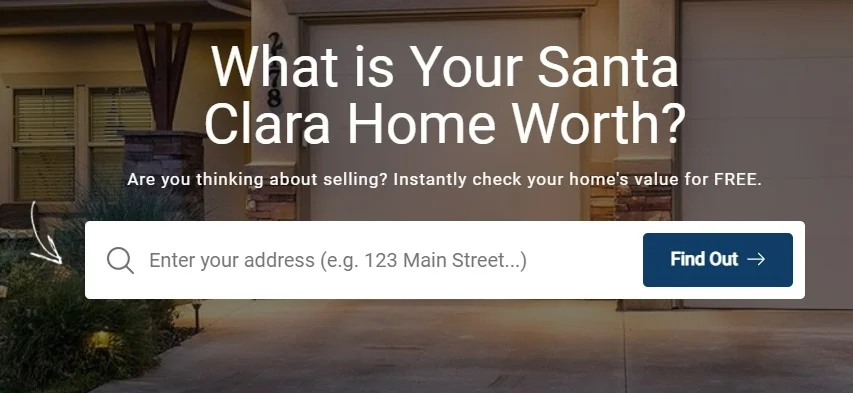How Much Can a Landlord Raise Rent in Santa Clara?
A lot has changed in regards to rules and laws involving rental property in California in the last 5 years.
The biggest change has been brought about by AB 1482 also know as the Tenant Protection Act or statewide rent control.
If you own a rental property in Santa Clara your property maybe subject to AB 1482.
This article goes over what AB 1482 does so you can understand how it may affect your rental property.
So, What Is Rent Control?
Rent control is a government-mandated price ceiling on rent prices.
It is designed to make housing more affordable for tenants by capping how much landlords can charge for rent prices. There are two different types of rent control: universal rent control and targeted rent control.
Universal rent control applies to all rental units in a jurisdiction, while targeted rent control only applies to units that are considered affordable housing.
AB 1482 is a type of targeted rent Control.
A Brief Look Into AB 1482 in California
In 2020, the state of California passed a rent control law, called AB 1482.
This law placed a statewide cap on rent increases at 5% plus the Consumer Price Index (CPI), with a maximum of 10%. The CPI is an index that measures the change in prices of goods and services over time.
AB 1482 also included a number of other provisions designed to protect tenants, such as barring landlords from evicting tenants without just cause and requiring landlords to provide relocation assistance to tenants who are displaced due to no fault of their own.
The law went into effect on January 1, 2020, and will sunset on January 1, 2030, unless it is extended by the legislature. However, the direction that the state government will take remains to be seen.
Also keep in mind that AB 1482 is statewide. If you own property in other areas of California that have stricter rent control laws, those laws would take precedence over AB 1482.
As of the writing of this post, Santa Clara does not have its own rent control laws.
What Properties are Exempt from AB 1482
Buildings or properties that were built within the last 15 years are exempt from AB 1482. This is a rolling date for compliance. In other words, buildings that were constructed in 2008 will be subject to the rent increase cap starting in 2023, buildings that were constructed in 2009 will need to comply by 2024, etc.
AB 1482 also exempts single-family homes, condos, townhomes, and residences in which the owner-occupant rents or leases no more than two units or bedrooms.
These properties must be owned by individuals and not owned by corporations or real estate investment trusts. So, if you have formed an LLC to rent out your property, your property is not exempt.
The bill also exempts duplexes where the owner occupies one of the units.
Although your property may qualify as an exempt property, you need to disclose to your tenants that the property is exempt from AB 1482. Failure to disclose the exemption will render the property as being subject to AB 1482.
The state allowed all property owners an opportunity to update their tenants under existing leases in 2020. If you did not disclose to your tenant during that time period that your property is exempt, it will not qualify for the exemption for that lease.
For more about property exemptions, you can check out my post on AB 1482, or contact a qualified legal expert.
How Does This Impact How Much a Landlord in California Can Raise Their Rent?
Under AB 1482, a landlord in California can only raise the rent by 5% plus the CPI, with a maximum of 10%.
So, if the CPI is 2%, then a landlord can raise the rent by 7% (5% + 2%).
However, if the CPI is 7%, then the landlord can only raise the rent by 10% which is the cap for rental increases.
How Does This Law Impact Evictions in California?
AB 1482 bars landlords from evicting tenants without just cause.
Just cause means that the landlord has to have a legitimate reason for evicting the tenant or terminating the lease.
Those reasons are defined in AB 1482 and include things such as non-payment of rent, damage to the property, or a lease violation. There are other reasons that a landlord may terminate the lease, such as substantially remodeling the unit, taking it off the rental market to sell, or having a family member such as a child or parent move in.
This law also requires landlords to provide relocation assistance to tenants who are displaced due to no fault of their own. The amount of relocation assistance is equivalent to one month’s rent.
Although I don’t go into the specifics about AB 1482 in this post. I have another post that covers AB 1482 in more detail.
What Type of Properties Does Rent Control In California Apply To?
Rent control in California applies to nearly all residential rental units, with the exception of units that are not owned by corporations, REITs or duplexes where the owner lives in one of the units.
This includes single-family homes, apartments, and condos. However, there are certain exceptions.
Other exceptions include mobile homes, college dormitories, and properties that are less than 15 years old.
For a complete breakdown of what properties are exempt and not exempt from AB 1482, please access the AB 1482 bill.
Under This New Law, How Do Evictions Work?
Landlords are still able to evict tenants for just cause, such as non-payment of rent, damage to property, or a lease violation. However, it’s essential to understand that there is both at-fault just cause and no-fault just cause.
No-fault just cause it includes situations where the tenant has to be evicted due to no fault of their own, such as if the landlord needs to move into the unit or if the property is being sold.
In contrast, at-fault just cause involves evicting a tenant because they have done something wrong, such as not paying rent or damaging the property.
For more clarification on how no-fault and at-fault evictions work, I recommend reviewing the AB 1482 bill or contacting a legal professional for advice about your situation.
Contact Me Today
Have a question? Interested in setting an appointment to talk about your real estate plans? Contact me today.
-
VINICIUS BRASIL, Realtor
Keller Williams - The Brasil Group
19900 Stevens Creek Blvd #100
Cupertino, CA 95014 - 408.582.3272
- Schedule a meeting







